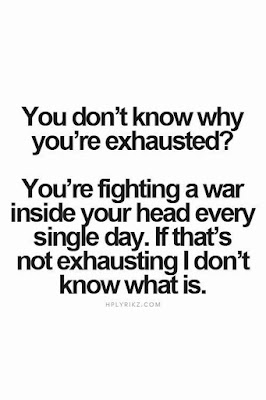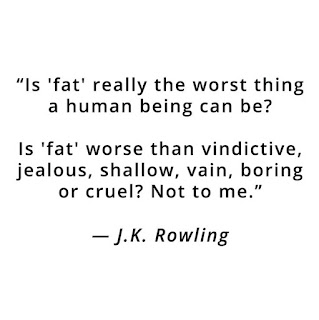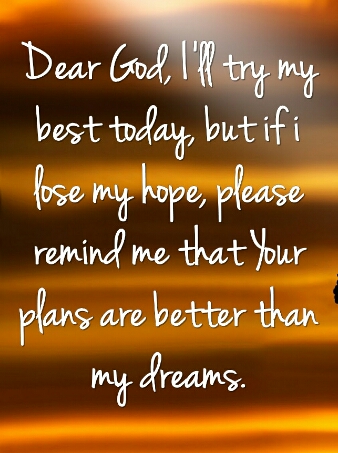 I love to write but lately, I haven't had a ton of time. When I do, I'm often uninspired. When I am, it's usually political, and who wants to go there?
I love to write but lately, I haven't had a ton of time. When I do, I'm often uninspired. When I am, it's usually political, and who wants to go there?Wednesday, November 2, 2016
Blog challenge - smells and technology
 I love to write but lately, I haven't had a ton of time. When I do, I'm often uninspired. When I am, it's usually political, and who wants to go there?
I love to write but lately, I haven't had a ton of time. When I do, I'm often uninspired. When I am, it's usually political, and who wants to go there?Wednesday, August 17, 2016
Challenge accepted
The other day, a friend of mine summarized something she’d heard somewhere, and I love it. I LOVE IT SO HARD. "You know one hundred percent of your own life," she said. "But on social media, you only share the best five percent of it: your baby’s first steps, your trip to the Bahamas, your graduation day. That’s all anyone else sees. It’s fascinating to keep up with those things, for sure. But it’s also why Facebook can be so discouraging: we compare one hundred percent of our own life to THE BEST five percent of everyone else’s."
 |
| This photo celebrates what it's like to take a selfie with a 15" height difference. |
Wednesday, August 10, 2016
Grateful everyday
 My stomach also hurts. You've felt butterflies before, right? This is like that, except it's like the butterflies are being attacked like a swarm of wasps. I can't eat - which would be great for my jean size, but it never lasts. Anyway, not eating doesn't really help with the seeing, walking, and focus.
My stomach also hurts. You've felt butterflies before, right? This is like that, except it's like the butterflies are being attacked like a swarm of wasps. I can't eat - which would be great for my jean size, but it never lasts. Anyway, not eating doesn't really help with the seeing, walking, and focus. I have learned a lot of "coping mechanisms." They work - most of the time. Sometimes the anxiety is so overwhelming that it takes over even my best efforts and tools.
So what do I do in the meantime?
I remind myself how lucky I am. Everyday, I tell myself that it will be OK. I remind myself that my God is bigger than any of my problems. I pray. I hope. I talk to my friends. I let myself cry and then I move on because letting anxiety win is just not acceptable.
I have far too much to live for.
Friday, July 29, 2016
A few thoughts
- I understand that people don't really like Hillary, or trust her. But I'm still confused on why some refer to her as a criminal.
- I totally understand disagreeing with a party's views, and even voting for the opposing party just because... but the idea of voting for someone you admit is bad for the country doesn't make sense.
- There is very little about government that is fair or logical or reasonable. Much of it is corrupt and biased. I'm confused by the idea that voting for one guy could change hundreds of years of that history.
- If you want to change the system, maybe not voting for a rich white dude is a good place to start.
- What exactly is the appeal of Donald Trump? People say it's because he "speaks the truth." But whose truth? He's seems like a racist, misogynistic bully to me, and while I am sure he's a very smart business man, I've seen no evidence that he knows how to work with others to get something done. I've met a lot of CEOs and presidents in my lifetime; they were all smart, determined, resilient, and used to getting their own way. None of them possessed an ounce of the diplomacy required to be the leader of the free world.
- The idea that you need to vote for Hillary if you are a feminist seems backwards to me. Feminism isn't (or at least shouldn't be) based on the idea that women should get the job. It's based on the idea that women should have the same chance as men for the same job. You can be happy that a woman finally broke through and still not feel she's the best person for the job.
- That being said... if you are a woman, and you've ever lost a new job or a promotion or a raise because you are a woman, you should be at least a tiny bit happy that another barrier is broken. It's a big deal for a woman to stand where Hillary stood the other night. Take a moment and think on that, even if you still don't like her or her politics.
- If we're friends, I will still be your friend after this election. Unless you're a racist, misogynistic bully and/or support the idea that minorities, women, or immigrants are in any way less important than white, American men.
But if that's the case, I'm not sure how we became friends in the first place - and I'm sure you won't think of it as any big loss anyway.
Wednesday, July 20, 2016
Tired
I may not agree with your choices. I may not understand them. You may not agree with or understand mine. I still don't understand why that matters. Why do we need to agree? I'm tired of trying to figure it out.
I am 100% sure there are people out there who believe others should be killed for the color of their skin. I am 100% sure there are people out there who believe others should be punished for who they love or how they live. I am also 100% sure there are people out there who believe all police are corrupt, evil, and should be killed.
I am reasonably sure those of us who just want a safe, happy, peaceful world outnumber all of those people. (I wish I was 100% on this one, but I'm just not.) I just don't think we all agree on how to get started.
Here's a picture of my cat, being all happy and peaceful. Coincidentally, he also looks tired in this photo. I figure we need to find a way to get on the same page. Everyone likes Joe, so maybe this is a good place to start?
Monday, June 13, 2016
Start listening
The problem I have seen, and the reason I avoid posting, is the comments that follow. The bickering over gun control or religious freedom or whether or not our President is a mole (Seriously!?) or whether or not people in the LGBT community are sinners or whether or not God was at work... It goes on and on and on. The arguments feed the hate and the anger, until both have a life of their own. Instead of using the tragedy as a way to come together, we allow it to tear us apart.
People who share opinions are instantly labeled: Conservative or liberal, republican or democrat, LGBT-friendly, religious, Christian, Muslim, pro-gun, anti-gun. Labels lead to assumptions; we automatically assume that because we know a person's political affiliation or religious practice, we must also know where he stands on gun-control or LGBT rights.
Assumptions are natural, and labels are easy. I'm as guilty as anyone. I read comments and I automatically assume I know where someone stands on any issue. I have leapt to the conclusion that disagreement is personal, and means we can not be friends.
But I have learned that why a person feels the way he does is just as important as what he feels - and how he chooses to express or act upon those feelings is more important than either.
I have also learned that although people may disagree on a defined political or social issue, that very well may agree that a problem exists - and they may even be able to find common ground on a solution.

I have learned more about compassion and love and freedom and understanding and support from this one person than I have from all of the posts and articles I've read combined. He's wise and kind - and that's coming from someone who often disagrees with his point of view. I may not agree with him, but I absolutely respect him.
If I have learned one thing from spending time with someone who disagrees with me on so much, it is this: Nothing will ever change until we are all willing to stop fighting and start listening.
Thursday, April 7, 2016
Fat is not the problem
I've spent a lot of time carefully curating the people with whom I surround myself (both online and in real life) so I don't see a lot of negativity (unless I go searching, and I only do that when I'm in a really good mood so I can handle what I find). What I do see (and hear) are a lot of well-intentioned comments that fall just short of their mark.
There are the obvious insults. Any time a heavy woman posts a photo of herself, the trolls come out in droves. You know, these guys who hide behind the keyboard in their parents' basement, but feel they are in a position to judge another person.
But to me, those aren't even the worst comments. Sure, being called names is hurtful - but most of us have been called names all our lives. Personally, if I hadn't learned how to handle that kind of insult, I wouldn't have survived past grade school.
It's the well-intentioned, but slightly-off-mark, comments that are tough.
Comments like, "She's fat - but she's still really pretty," or "She's so brave for wearing that (whatever item) with such confidence." Then there's my personal favorite, "That outfit is so flattering."
Obviously these all sound like compliments. They're meant in a genuine way, and people honestly mean to convey a good, positive message. They never intended to fat-shame - but do they?
If your comment suggests that it's a surprise for a fat woman to be beautiful or confident - that's fat-shaming. If it suggests that an outfit would look good on a thin woman, but a fat woman has to settle for not looking awful - that's fat-shaming. If you feel the need to excuse or explain or defend a person's fatness, you're suggesting there's something wrong with her - and that's fat-shaming.
 Use whatever fancy, pretty word you like; the truth is, I'm fat. I'm also brunette, short, 42, white, hazel-eyed, and have a medium complexion. All of those things make up how I look - and all of them could be appealing, or not, to anyone who I encounter. So why is my weight the only thing that makes me "brave?" Or makes people question my confidence? Why is it the one thing that everyone feels the need to excuse?
Use whatever fancy, pretty word you like; the truth is, I'm fat. I'm also brunette, short, 42, white, hazel-eyed, and have a medium complexion. All of those things make up how I look - and all of them could be appealing, or not, to anyone who I encounter. So why is my weight the only thing that makes me "brave?" Or makes people question my confidence? Why is it the one thing that everyone feels the need to excuse? Sunday, January 31, 2016
Elevator buttons
I watched the movie Inception the other night. It still isn't my favorite, but since it only took me three viewings (over several years) to sort of get it, I'd probably watch it again.
At the end, my boyfriend asked, "So how many buttons are in your elevator?" I stared at him for a beat and he continued, "The buttons were regrets in life."
OK - I said I sort of got the movie.
I used to have a lot of regrets. I've regretted my contributions to my failed marriage. I've regretted dating men who ultimately hurt me (and some who just never seem to go away). I've regretted career choices, financial choices, and not sticking to a healthier lifestyle.
In the movie, the characters can use the elevator to visit moments they regret. This is presumably to try and relive, and possibly change, those moments (Though that makes little sense, because the elevator only appears in dreams. OK, it's possible I don't really understand this movie at all.)
But actually changing our regrettable moments isn't really possible, anyway - so maybe that's the point?
I came to the conclusion a few years ago that regrets were pointless. I can't go back to those moments and change anything. Honestly, if I could, I'm not even sure I would. There's no way to tell what else I would impact by making even the tiniest change. Why take that risk?
The truth is, life is nothing but a series of decisions strung together. Some good, some wonderful, and some regrettable. But even the worst choices can lead to a positive result.
Maybe I'm naive, or maybe I'm just fooling myself. But it seems to me that every choice - good or bad - is a chance to learn. What works, and what doesn't; who you are, and who you want to become. You learn what makes you happy, and where you want to be. Why would you regret all those lessons?
I have noticed that some of the worst things to happen in my life were preparing me for something so much better. At the time, of course, I couldn't know - and the pain or sadness felt like I'd made a huge mistake.
But knowing what I know now... Why would I regret anything that helped get me where I want to be?
Growing in my faith has taught me that there is a plan much larger than my own - and my regrettable moments are as much a part of that plan as everything else.
When you look at them that way, those moments aren't so bad, after all.


